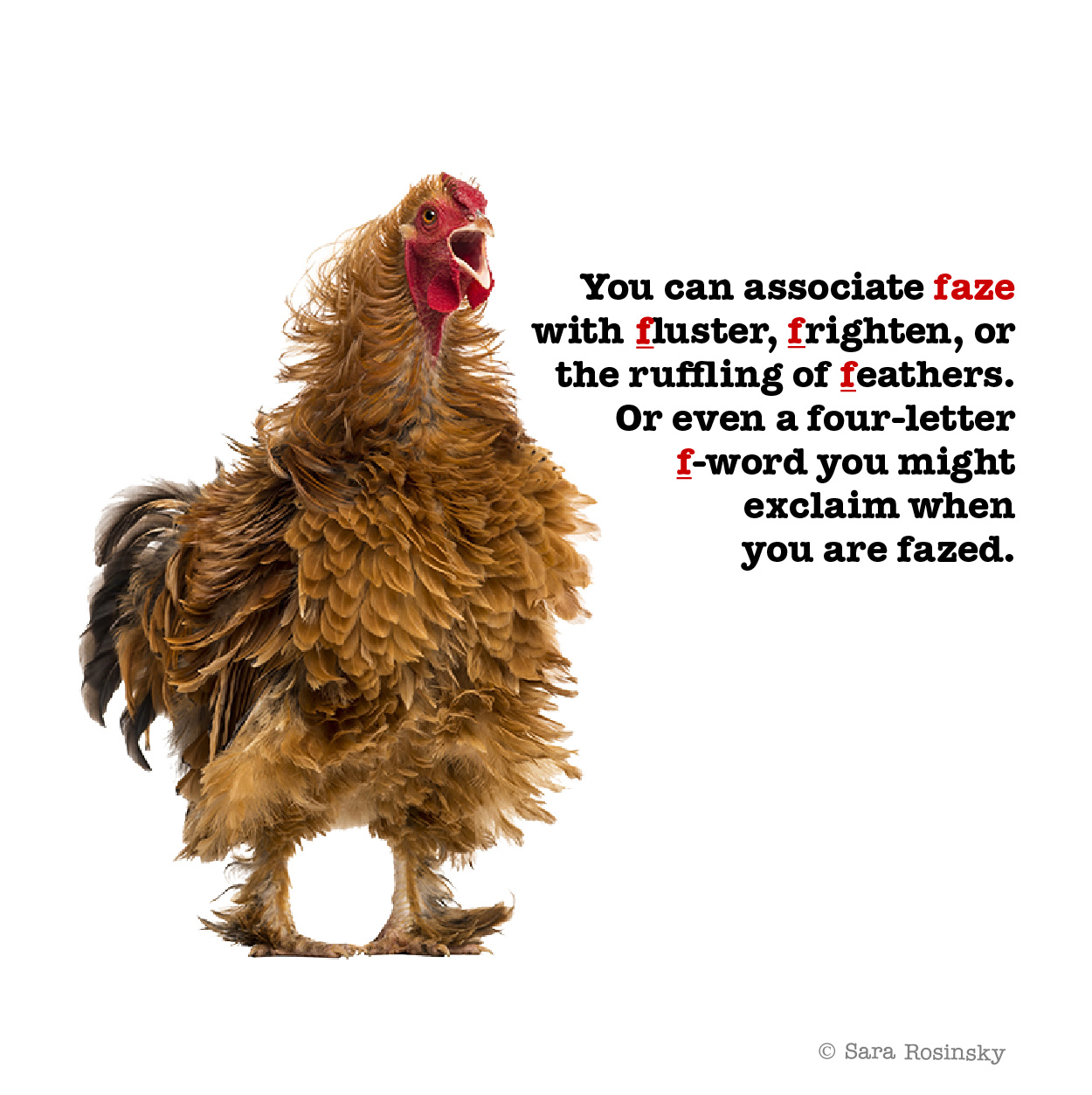Differentiating Devious Doppelgänger Words


Tough to tell apart. Troubling.
A while back, I wrote “Lethal Lookalike Words and How to Spot Them.” In it, I clarified several of English’s many tricky words that sound alike and look so similar, they’re easy to confuse and spell wrong. But there are countless other linguistic twins and triplets, so I thought I’d tackle a few more.
Let’s begin with a notorious set of homophones that all designers have to deal with.
Palate, pallet, and palette.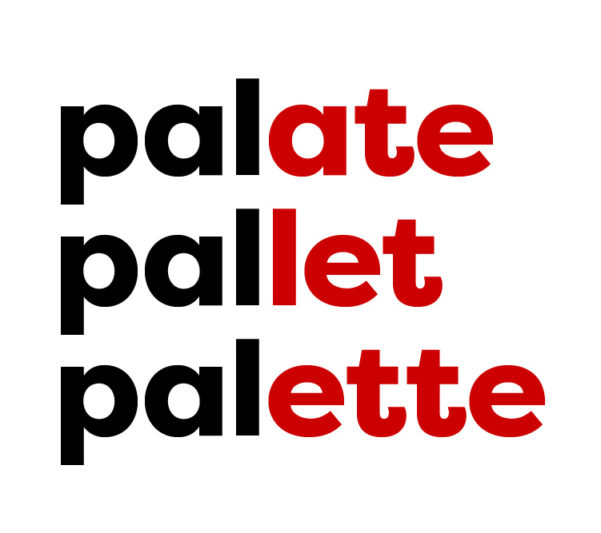
Helpfully, all three of these troublemakers begin with the friendly word “pal.” Here’s how you can keep the remaining letters straight.
Palate refers to the roof of the mouth and sense of taste. Simply connect “ate” with eating.
Pallet refers to 1) a straw mattress and 2) one of those flat wooden platforms that get moved around with forklifts at Home Depot. Memory trick: Imagine placing a straw mattress on top of a wooden pallet and saying, “Please just let me lie down here for a minute.”
Palette is, of course, the creative pro’s favorite. It’s 1) that flat board where you mix paint, or 2) a group of colors. To remember the spelling for these artsy meanings, try burning this image into your mind:
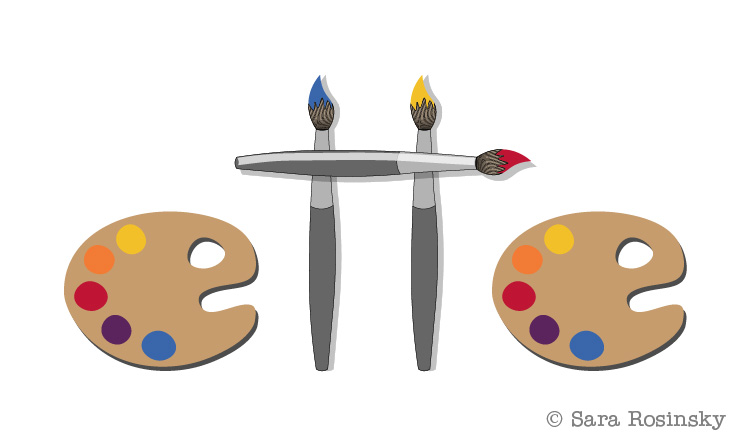
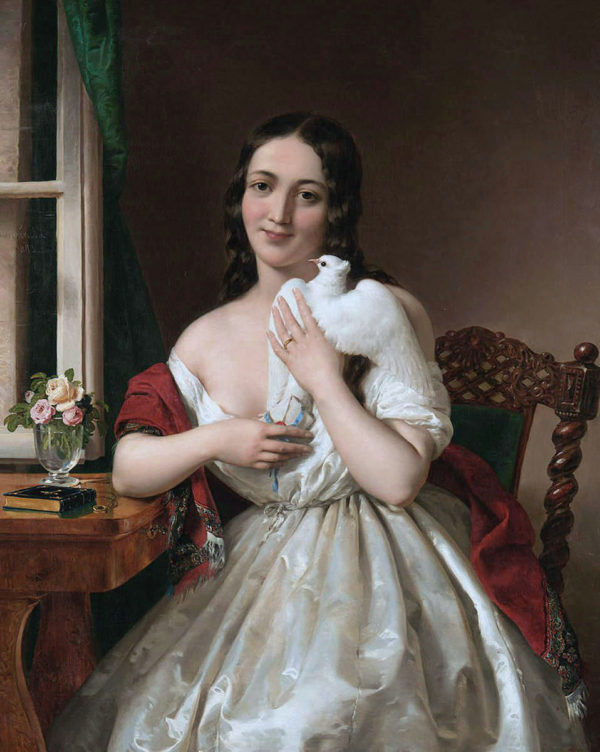
Pigeon Post by Miklós Barabás, 1843. One wonders what sort of letters this married woman is sending and receiving.
Home and hone.
To keep these two words straight, think about pigeons.
A homing pigeon is used to deliver mail because it has a natural tendency and talent: It always returns to its home, no matter where it’s released from. The pigeon always homes in on its nest. Similarly, a homing device guides something like a missile or plane toward its target. To home in on something is to zero in on it.
To hone something, on the other hand, is to sharpen it. You might hone a physical object like an ax, an ice skate, or a shiv. Or you might practice so you can hone a talent or skill like playing the tuba or manipulating Bezier curves.
Hone can also be a noun. It’s a whetstone. Which leads us to…
Whet and wet.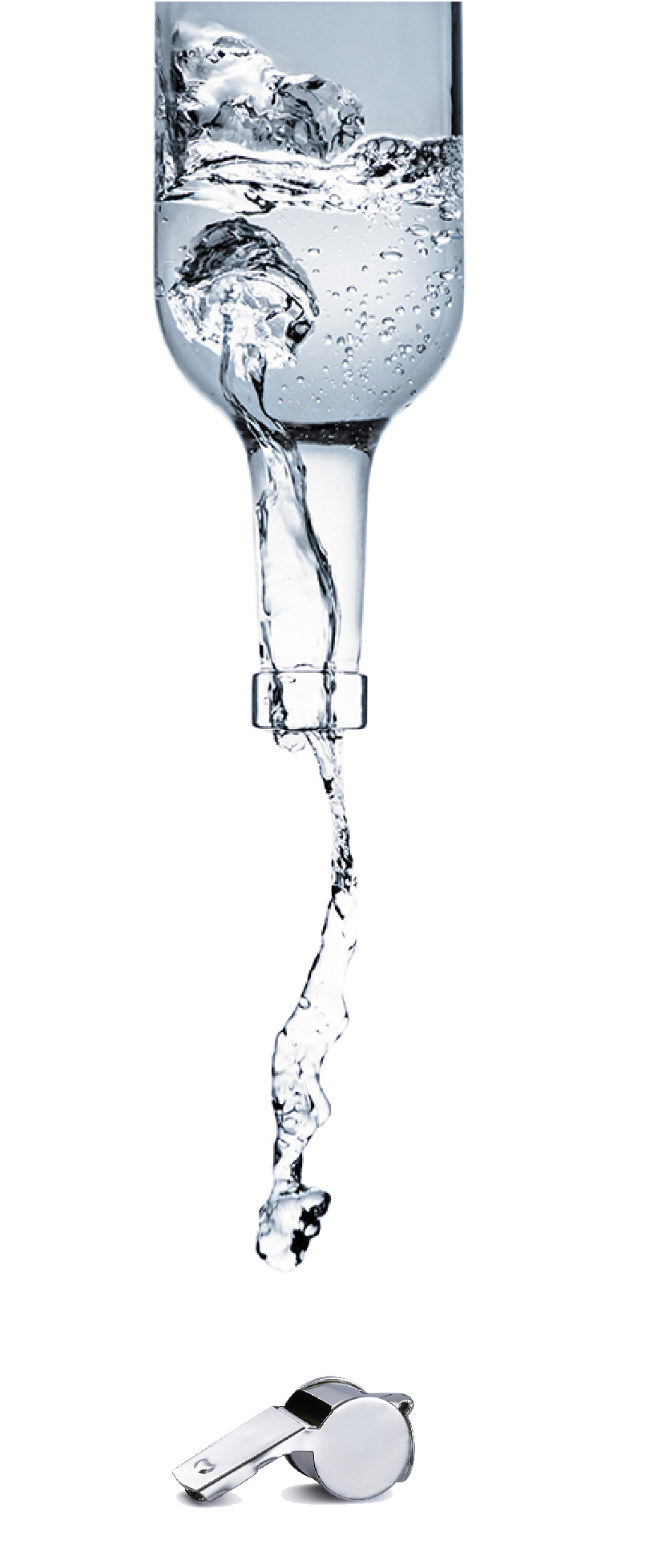
To whet is to hone—to sharpen or intensify. So when something whets your appetite, it’s making your appetite more pointed and noticeable.
There’s a similar-sounding, differently spelled phrase: to wet your whistle. As the Oxford English Dictionary puts it, “whistle” is “a jocular name for the mouth or throat.” So you wet your whistle by drinking a refreshing beverage.
In short: whetting is for appetites; wetting is for whistles.
Stationery and stationary.
A lot of designers appreciate the world of stationery (oooh, paper!). And design is a stationary activity—even if you work at a standing desk, you’re still standing in one place.
Yup: two different spellings. People get ’em wrong all the time. But you don’t have to!
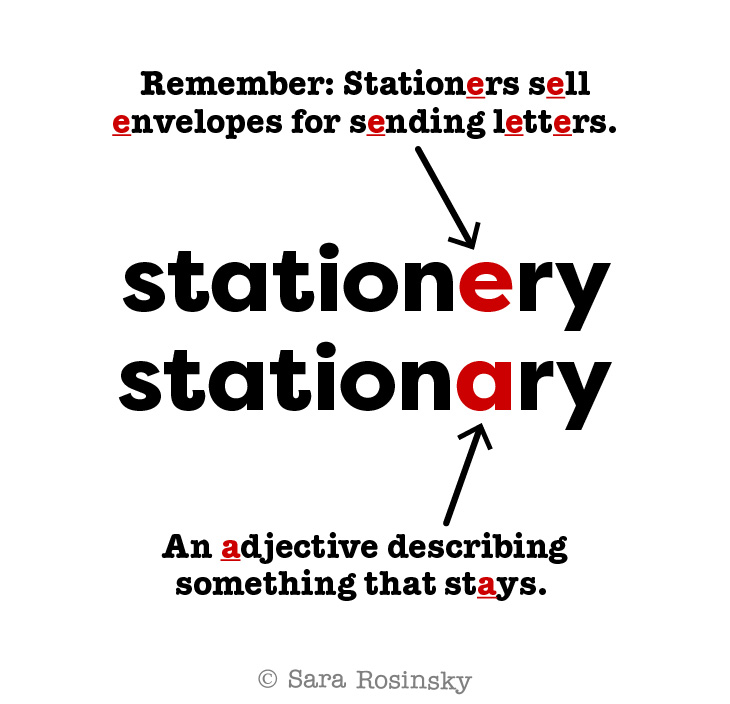
Capital and capitol.

In all instances but one, the spelling you want is capital. A capital idea is an excellent one. A capital crime is punishable by death—capital punishment. Capital can mean money. Shouty people use LOTS OF CAPITAL LETTERS. A capital city is the seat of government (like Kinshasa or Ouagadougou, which are both on my list entitled “Words That Sound Good”).
Capitol refers to only one thing: a building where a legislative body meets. When you talk about the one in Washington, D.C., you capitalize it: Today at the Capitol, legislators broke with tradition and engaged in a vigorous game of dodgeball. Many capitols have domes. And the roundness of those domes is the perfect way to remember to use an O in capitol.
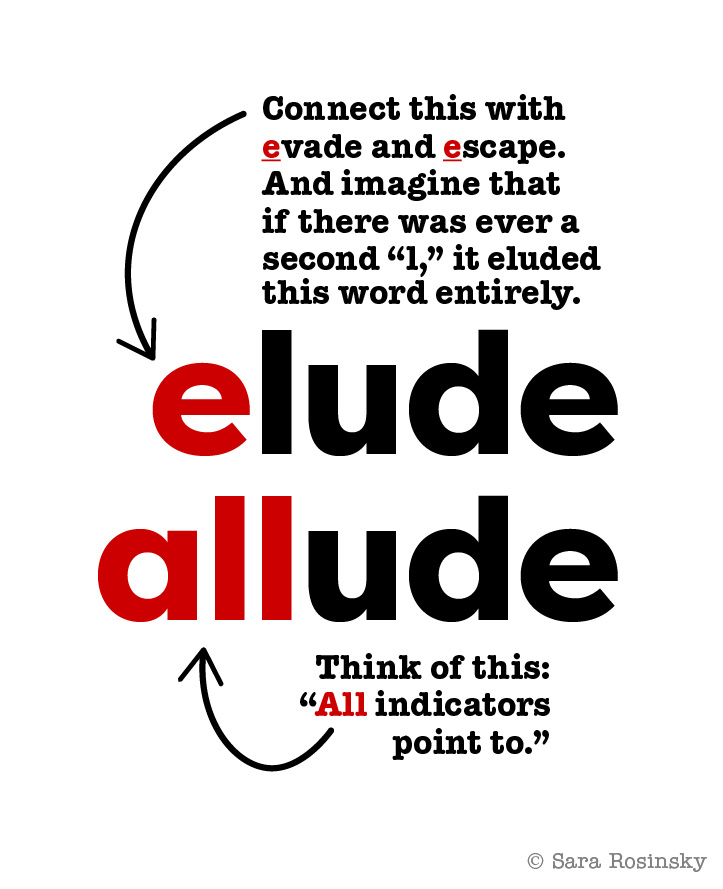 Elude and allude.
Elude and allude.
You might be surprised to learn that both of these words derive from the Latin word ludere, meaning “to play,” and that they’re related to “ludicrous.” But let’s stick to the task of telling them apart.
Elude is a transitive verb (you don’t just elude; you elude something or someone) meaning to evade or avoid. Sometimes it’s used to describe an idea that’s hard to grasp. After eluding arrest for over 50 years, the egomaniacal flimflam man spent his remaining years in prison. His ability to get away with his shenanigans for so long always eluded me.
Allude is a verb almost always followed by “to.” To allude to something means to refer to or hint at it. When you mentioned an “egomaniacal flimflam man,” were you alluding to someone in particular?
Phase and faze.
These two homophones have entirely different meanings.
Phase can be either a noun or a verb. As a noun, it’s a period of time or a stage. You might talk about the phases of the moon or your sister’s punk, Buddhist, and libertarian phases. As a verb, “phase” conveys doing something in gradual steps: phasing out sugar from your life, for example. Or chocolate. Or unrealistic expectations.
Faze is a verb. It means to disturb or unsettle. You’d likely faze a stranger if you pointed urgently at them and yelled accusingly, “You! It was YOU!” If someone is even-keeled and mellow, they remain unfazed by nearby nudists, rattlesnakes, and SWAT teams.
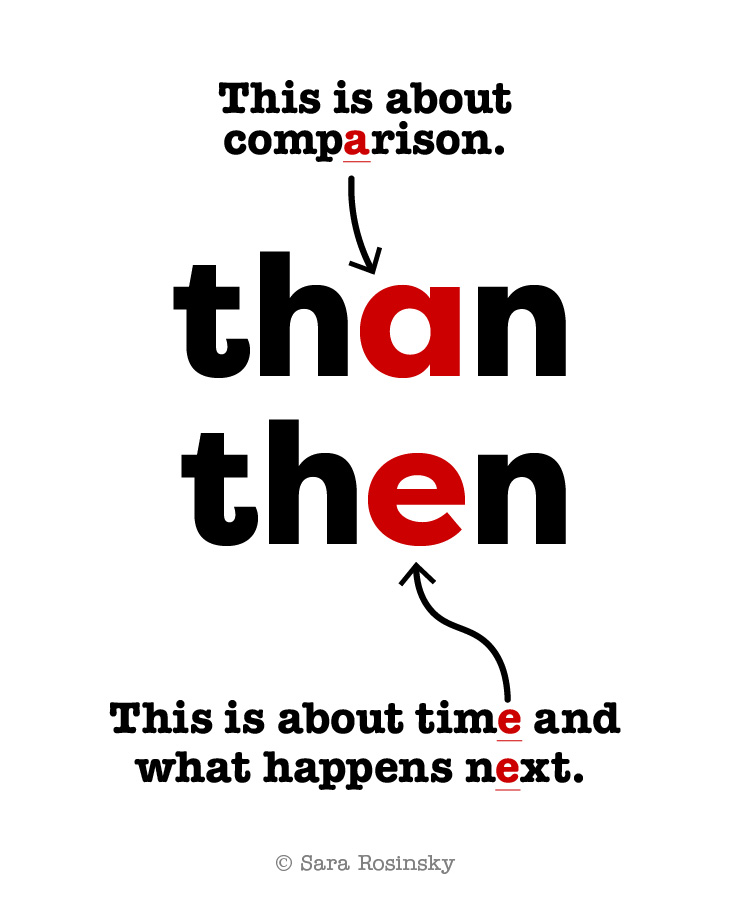
Than and then.
Use than when you’re comparing things. She’s older than our solar system. He’s dumber than mold. Other than his murder rap, your fiancé seems like a great catch.
Use then when time (often, in the sense of “next”) is involved. I put on a hazmat suit, and then I went to meet my blind date. My then (at-the-time) orthodontist then became my stepfather. Back then, I had a touch of kleptomania.
“Then” is the version that gets paired with “if.” If you’re “eleventy percent soberer” than I am, then you won’t mind taking a breathalyzer test. If she’s a real doctor, then I’m the pope.
Happy writing!
This is, of course, an incomplete list of duplicitous doppelgänger words, but I hope it helps.
If you’d like to learn more, I address this sort of thing on LinkedIn pretty much every day. You can also sign up here to receive a little lesson about spelling and/or grammar by email each week.
This article was last modified on April 14, 2021
This article was first published on April 6, 2020
Commenting is easier and faster when you're logged in!
Recommended for you

These Copy “Sins” Aren’t Sins at All
Not long ago, I wrote about five common copy errors (and how to avoid them). But...

Unflubbify Your Writing Book Excerpt
Use these quick tips to improve your spelling, punctuation, and grammar.
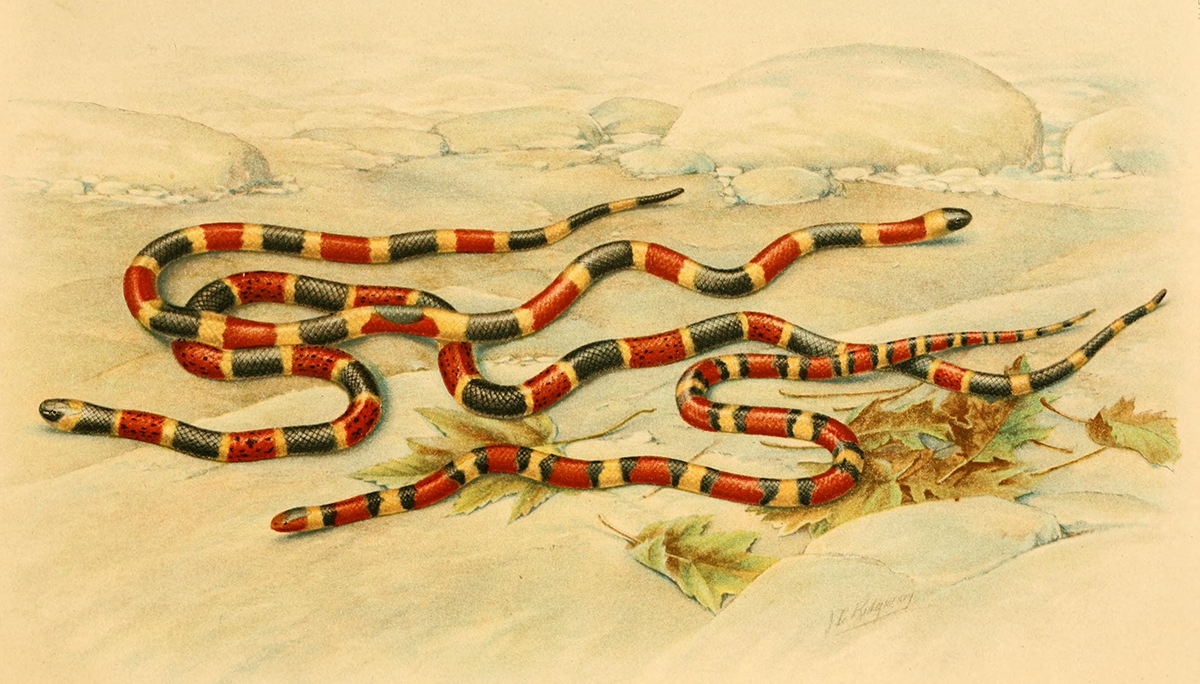
Lethal Lookalike Words and How to Spot Them
Apologies to all the ophidiophobes (folks freaked out by snakes). But this image...




